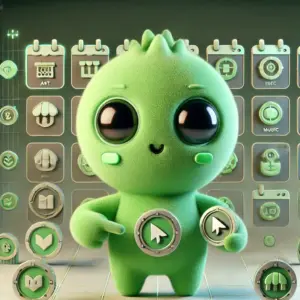In recent years, the acronym “NFT” has exploded into the mainstream consciousness, often accompanied by a whirlwind of hype, confusion, and skepticism. Non-fungible tokens (NFTs) have emerged as a transformative force in the digital realm, challenging our traditional understanding of ownership, authenticity, and value in the age of the internet. However, for many, NFTs remain a nebulous concept, shrouded in complex terminology and unfamiliar technologies.
Navigating the NFT landscape can be daunting, but it’s crucial to dispel the myths, understand the fundamentals, and recognize the potential of this groundbreaking technology. This comprehensive guide aims to provide a clear and accessible introduction to NFTs, empowering individuals, educators, and organizations to effectively educate others about this revolutionary concept.
Understanding the Basics of NFTs
Before delving into the world of NFTs, it’s essential to grasp the underlying concepts that underpin their existence.
1. Digital Ownership and Value:
NFTs address the inherent challenges of attributing ownership and assigning value to digital assets. Unlike traditional physical items, digital creations can be easily copied and shared, rendering them difficult to authenticate and monetize. NFTs, on the other hand, leverage the power of blockchain technology to establish a verifiable and transparent record of ownership, providing a unique identifier for each digital asset. This unique identifier, stored on a decentralized network, ensures that the original creator or owner can be recognized and rewarded for their work.
2. Blockchain Technology:
At the heart of NFTs lies blockchain technology, a revolutionary distributed ledger system that underpins cryptocurrencies like Bitcoin and Ethereum. Blockchain provides a tamper-proof and secure record of transactions, ensuring the integrity and authenticity of NFT ownership. Each NFT is essentially a digital token embedded within the blockchain, establishing its ownership and providing a transparent history of its transfers.
NFT Applications and Use Cases
NFTs have the potential to revolutionize various industries and aspects of our lives, expanding beyond the realm of digital art and collectibles. Here are some of the emerging applications of NFTs:
1. Digital Art and Collectibles:
NFTs have revolutionized the art world, enabling artists to sell their digital creations as unique and verifiable assets. Artists can now monetize their work directly, bypassing intermediaries and connecting with collectors worldwide.
2. Gaming and Metaverse:
NFTs are transforming the gaming industry, introducing new forms of ownership, monetization, and in-game experiences. Gamers can now purchase and trade digital assets such as avatars, weapons, and even entire virtual worlds, creating a more immersive and engaging gaming experience.
3. Music and Entertainment:
NFTs are empowering musicians and creators to distribute their work in a secure and verifiable manner, enabling them to monetize their creations directly. Fans can now own and trade unique digital music files, concert tickets, and even merchandise, fostering a deeper connection with their favorite artists.
4. Supply Chain Management:
NFTs are being explored to enhance supply chain transparency and traceability, providing consumers with reliable information about the origin and authenticity of products. NFTs embedded in product tags or packaging can track the movement of goods, ensuring ethical sourcing and reducing counterfeiting.
5. Identity and Access Management:
NFTs have the potential to transform identity management by creating verifiable and secure digital credentials. Individuals could securely store and share their educational qualifications, certifications, or even medical records as NFTs, streamlining access and verification processes.
Educating Others About NFTs: Effective Strategies and Resources
As NFTs continue to gain traction, it’s crucial to educate individuals and institutions about this innovative technology. Here are some effective strategies for educating others about NFTs:
1. Start with the Basics: Begin by explaining the fundamental concepts of blockchain technology, digital ownership, and the unique properties of NFTs. Use clear and concise language, avoiding technical jargon that might alienate non-technical audiences.
2. Use Real-World Examples: Illustrate the concept of NFTs with relatable examples from various industries, such as art, music, gaming, or supply chain management. This helps individuals connect with the practical applications of NFTs and envision how they could be integrated into their own lives.
3. Address Common Concerns: Acknowledge and address common misconceptions and concerns about NFTs, such as their environmental impact, speculative nature, and potential for fraud. Provide balanced and objective information to foster understanding and trust.
4. Utilize Engaging Materials: Employ a variety of visual aids, such as infographics, videos, and interactive simulations, to make the learning process more engaging and accessible. Consider using interactive platforms or games to create a fun and immersive learning experience.
5. Provide Hands-on Experience: Encourage learners to experiment with NFT creation and trading platforms to gain practical experience. This hands-on approach helps individuals understand the processes involved and make informed decisions about NFTs.
6. Emphasize Responsible Usage: Educate individuals about the responsible use of NFTs, highlighting the potential environmental and social implications of this technology. Encourage ethical consumption practices and promote the benefits of NFTs in areas such as supporting artists and creators.
7. Utilize Educational Resources: Leverage a variety of educational resources, including online courses, webinars, and educational materials, to provide comprehensive and in-depth knowledge about NFTs. Consider partnering with experts and institutions to offer high-quality educational programs.
Recommended Educational Resources for NFTs
Here are some recommended educational resources for learning about NFTs:
1. Coursera: Blockchain and the Future of Finance by University of California, Berkeley
2. edX: Bitcoin and Cryptocurrencies by University of Michigan
3. Khan Academy: Non-Fungible Tokens (NFTs)
4. The NFT Handbook by Amy Wu
5. The NFT Handbook for Artists by NonFungible.com
6. The NFT Handbook for Businesses by Scott Belsky
Conclusion
NFTs represent a paradigm shift in the digital world, offering a new paradigm of ownership, authentication, and value for digital assets. Educating others about NFTs is essential to dispel myths, foster understanding, and unleash the potential of this transformative technology. By employing effective strategies and utilizing high-quality educational resources, we can empower individuals, organizations, and communities to navigate the ever-evolving NFT landscape with confidence and clarity.






